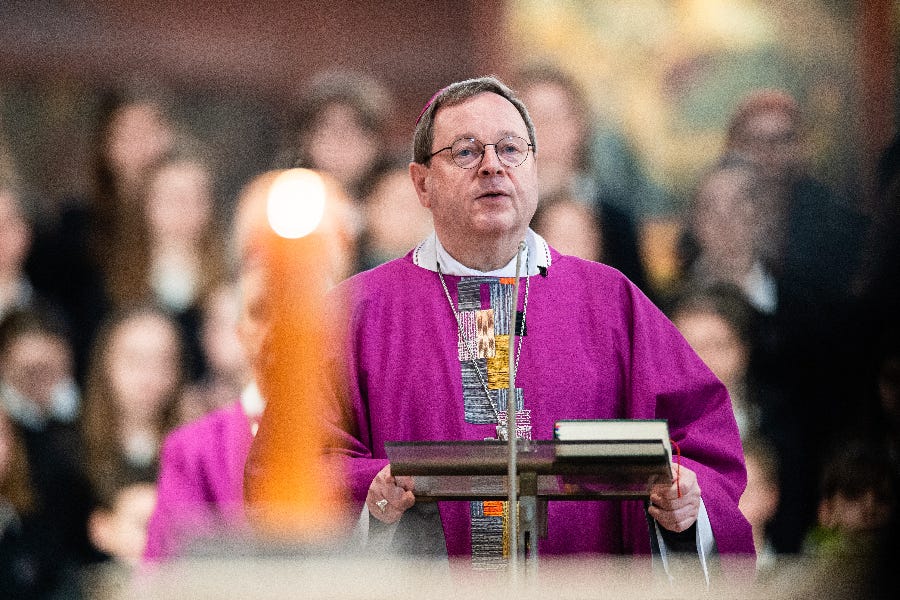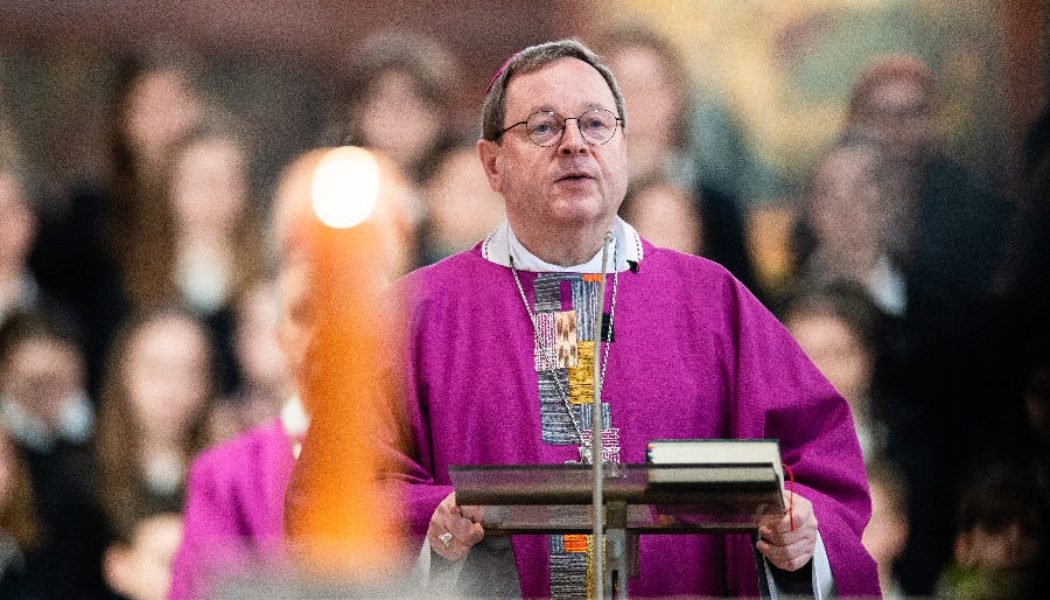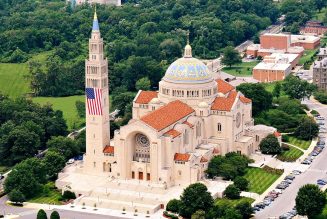The chairman of Germany’s bishops’ conference insisted Monday that the Vatican’s objection to a “synodal way” resolution calling for lay preaching at Masses is not the final word on the matter.

Bishop Georg Bätzing suggested in a May 22 interview that a letter he received in March from Cardinal Arthur Roche, the prefect of the Dicastery for Divine Worship, did not represent a definitive Vatican rejection of homilies by laymen and women in German dioceses.
He said that the letter reiterated what Roche had told the German bishops during their ad limina visit to the Vatican last November, so the bishops were already aware of “this state of affairs.”
Bätzing said that the resolution approved at the synodal way’s final session in March encouraged Germany’s bishops to ask Rome for an indult — or special dispensation — from canon law, which says that homilies at Mass may only be given by a priest or deacon.
“That means that universal Church law does not have to be changed, but that the special situation in our country is taken into account,” Bätzing said. “And the prefect writes just at the end of the letter that we must seek further discussion on the matter.”
Bätzing said that in his Diocese of Limburg, “theologically qualified and pastorally competent women and men” had preached at Masses “for a long time.”
“Not only should this practice not be restricted or withdrawn, but I would like these women and men to know that they are doing this with the consent of the bishop: They are doing this ministry with the consent of the bishop and in accordance with applicable law,” he said.
“They have the consent of the bishop — to arrange the legal framework well, that is the point of the request that Rome may agree to a corresponding particular norm.”
In his March letter, which has not been published in full, Cardinal Roche said that “misunderstandings about the figure and identity of the priest” could “arise in the consciousness of the Christian community” if lay people preached at Mass.
“Word and sacrament are inseparable realities, and inasmuch as they are not merely formal expressions of the exercise of sacra potestas [sacred power], they are neither separable nor can they be separable,” he wrote.
In an extensive interview with Limburg diocese’s spokesman Stephan Schnelle, Bishop Bätzing insisted that other controversial synodal way resolutions would also be implemented in his diocese, arguing that they were supported by the majority of German Catholics.
He confirmed that a text calling for official blessings of same-sex and remarried couples, also approved in March, would go into effect as soon as a manual with various forms of blessing was available.
The synodal way resolution contradicted a 2021 Vatican declaration that “the Church does not have, and cannot have, the power to bless unions of persons of the same sex.”
Bätzing said: “The task that still needs to be done lies in a good liturgical-pastoral manual for such celebrations that expresses the special nature of this wish [for blessings] and of the Church’s offer, and at the same time makes it clear that a blessing celebration cannot be a marriage ceremony or a sacrament. This is where the boundary lies.”
He added that the synodal way resolution “makes clear that no pastor can be pressured into celebrating such blessing services.”
“Conversely, as a bishop, I want to support those couples who ask for such a blessing in also finding the desired service of pastoral caregivers. There are already such blessing ceremonies. And I am grateful for them,” he said.
In the interview, Bätzing confirmed that following the synodal way’s conclusion in March, a “synodal committee” consisting of lay people and bishops will meet in November to discuss the implementation of the initiative’s resolutions in German dioceses.
After three years, the synodal committee is expected to make way for a permanent “synodal council” in which lay people and bishops exercise governing powers over the Church in Germany, despite a Vatican veto on the creation of the body.
“Once again, Rome has not blocked the work of the synodal committee, but has only made it clear that there can be no synodal council that undermines episcopal authority,” Bätzing commented. “But that is not what we seek either. To that extent, there is no impediment to the synodal committee.”
But he acknowledged that recent discussions among diocesan bishops showed there were “still open questions to be clarified.”
Although all of Germany’s 27 diocesan bishops are listed as members of the synodal committee, some may not take part after the Vatican clarified in January that they are not obliged to participate.
“Everyone must decide for himself the question of participation,” said Bätzing. “For me, I have long since done so, because for me there is no alternative to the continuation of genuine, honest, and effective synodality to shape a good future in our Church under the guidance of the Holy Spirit.”
“That is why I am also very excited about the experiences and the results of the global synod, in which I will be able to participate in the fall,” he said, referring to the synod on synodality’s opening session in Rome in October.
Comments 12
Services Marketplace – Listings, Bookings & Reviews









